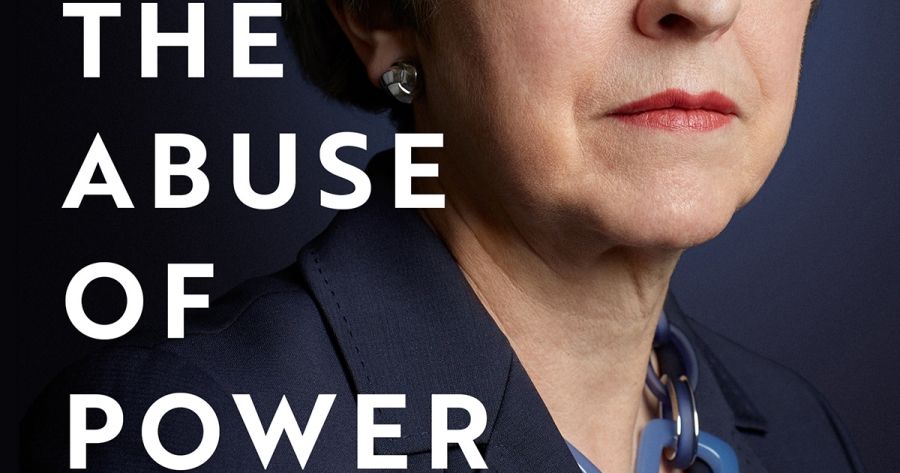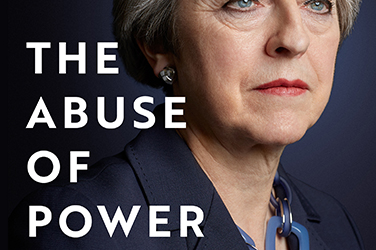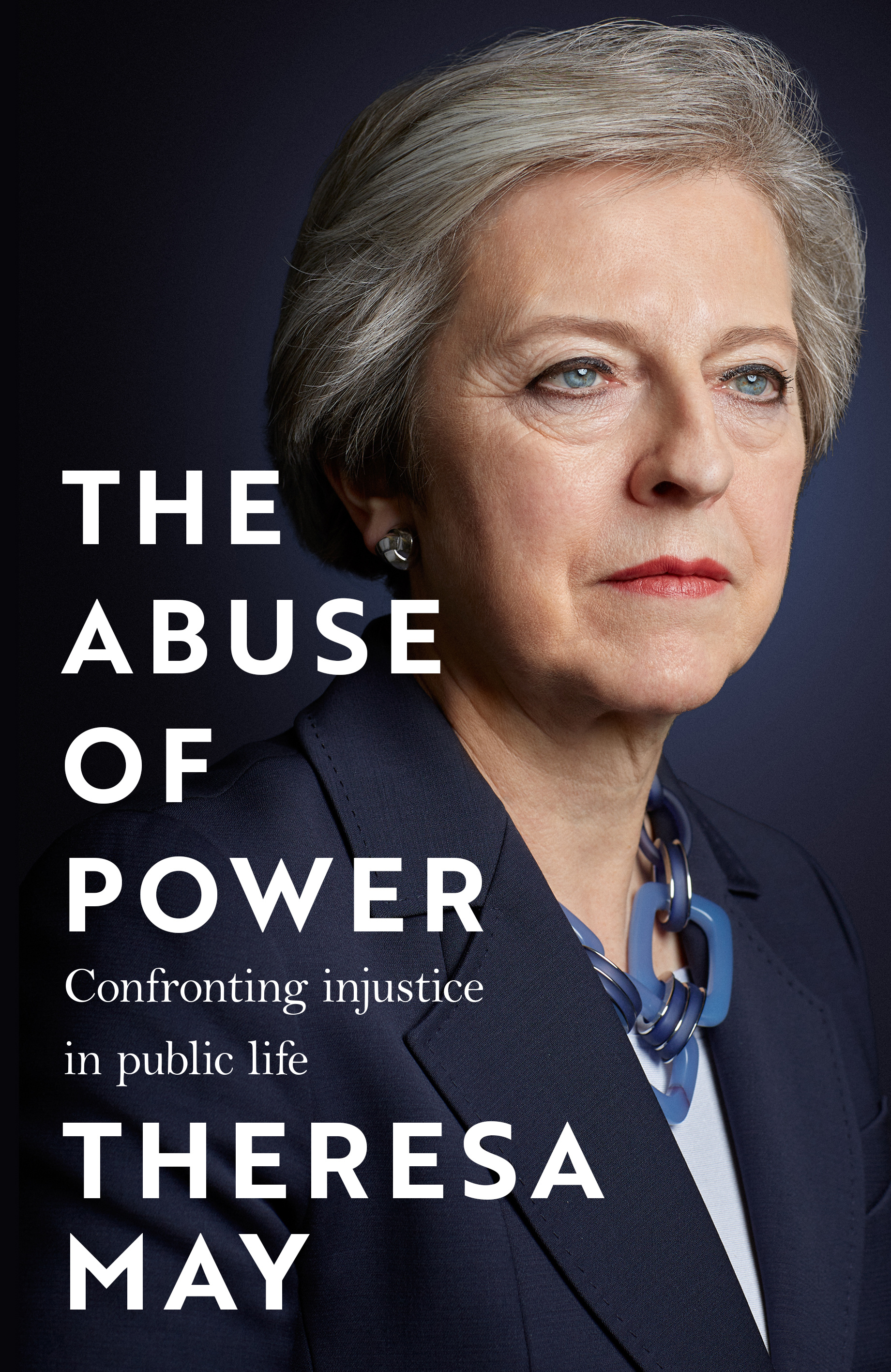
- Free Article: No
- Contents Category: Memoir
- Review Article: Yes
- Article Title: Goody two-shoes
- Article Subtitle: A pious and vicarish apologia
- Online Only: No
- Custom Highlight Text:
It takes some considerable effort to remember Theresa May’s time as prime minister. Her two governments ran from the resignation of David Cameron immediately after the political earthquake of the Brexit referendum in 2016, to May’s own tearful resignation in the summer of 2019 as the aftershocks swallowed her minority government. The distending effects of the past three years of UK (and world) politics have already made the May era a kind of historical curiosity. The consequent danger is that we look back to her stint as prime minister as the last gasp of sensible politics avant le déluge.
- Featured Image (400px * 250px):

- Alt Tag (Featured Image): Gordon Pentland reviews 'The Abuse of Power: Confronting injustice in public life' by Theresa May
- Book 1 Title: The Abuse of Power
- Book 1 Subtitle: Confronting injustice in public life
- Book 1 Biblio: Headline, $34.99 pb, 344 pp
- Book 1 Cover Small (400 x 600):

- Book 1 Cover (800 x 1200):

In spite of her moral loftiness, the mortal flesh is weak. There are scores to settle and villains to best, and they rear their heads throughout this volume. Boris Johnson is there in minor key, haunting the narrative as one of those vampires who have sucked the marrow out of public life. The first substantial bad guy we encounter, however, is the former speaker of the House of Commons, John Bercow. His egregious bullying of his staff earns him what one suspects constitutes a vicious sandbagging at the hands of May. This chapter sets the tone for the remainder of the book. Overall, its register is pious and vicarish. May repeats herself frequently and favours quoting, at length, from government reports.
While Bercow’s bullying provides a pretty clear example of the abuse of power, May’s account segues into an altogether more awkward fit for the theme: Brexit. In her doomed efforts to craft a workable deal, Bercow was not the only malign actor, abusing his power to stymie May’s efforts to enshrine ‘the democratic will of the people’. A large cross-section of democratically elected MPs is also in the dock. These men and women, Brexiteers and Remainers alike, abused their own share of power by not demonstrating sufficient foresight and flexibility to ‘look to a new future’, as defined by Mrs May. It is a curiously naïve view of politics, especially from one who has made it her career. And it is a jarring inclusion in a book which is largely about other matters. Perhaps an animal urge to settle scores or the insistence of the publisher or a combination of both explain its inclusion.
May’s other illustrations of widespread and endemic abuse of power within UK public life – around the tragedies at Hillsborough in 1989 and Grenfell in 2017, the sexual abuse scandal in Rotherham and half a dozen others – are sound enough. Few would disagree that her case studies contain ample and often damning evidence of the sorts of self-interested conduct or institutional deafness that May decries. They still contain conventional instances of score-settling. As we might expect from a long-term home secretary who had a torrid relationship with the police, HM’s constabulary do not come off too well in a number of chapters. In the absence of responsible public institutions, May seems to have near limitless faith instead in the ability of public inquiries and commissions to uncover ‘the truth’ behind these abuses. Hence the constant and distracting quotation from ‘grey literature’ to make her points.
The cumulative effect of her different examples is to render a portrait of a hollowed-out public life. The implied angelic contrast to those brutes who use office and position solely as vehicles for the exercise of power or the pursuit of self-interest are those who use them to nourish an ethic of service. May, we can only assume, is patron saint of this latter group, though she is far too self-effacing to say so bluntly. This is, of course, one of the self-justifying credos of the Oxocracy. It sits alongside a hereditary ‘born to rule’ mentality and a refurbished sense of aristocracy as technocratic government ‘by the best’.
Some readers may smell a rat at the bottom of this case. The odour is perhaps most pungent around those public scandals which clearly and unequivocally took place on May’s patch and on her watch. The most egregious is the treatment of Windrush migrants. May pretends to embark on a frank and brave accounting. She quickly changes tack. The history of UK immigration is placed in a long historical frame so that governments from Clement Attlee’s to her own, and every one of the twenty-seven different home secretaries since 1948, get to shoulder a little portion of the blame. It comes across as the protest of an errant child: ‘It’s not my fault, it was like that when I got here.’ The luxury of rich historical context and the careful faux-ethical reasoning to demonstrate that there was no ‘deliberate intent to use power in a way which could only damage others’ stand in stark contrast to the summary justice and moral absolutes meted out willy-nilly to others in her book.
May’s account of how UK politics got to its present impasse is quite conventional: the growth of a dysfunctional civil service; the iniquities of the twenty-four-hour media cycle and its corrosive impact on politicians and their relationships with civil servants, special advisers (colloquially 'SPADs'), and electors; careerism in politics, and a consumerist attitude to public life. But her solution to these ills is frankly bizarre: the revitalisation of a Victorian public service ethic and government by grey literature. These seem weak solvents for the muscular populism and corruption of a Boris Johnson or the posing technocratic globalism of a Rishi Sunak. May’s mechanisms for achieving this moral revolution – which include changing the selection procedures for MPs – seem laughably unfit for the challenge.
At best, this manages to be a book for our times, a distant lament from England’s imagined political past, and an impassioned plea for the restoration of decency. At worst, it comes across as having been written by someone self-interestedly making the case for unself-interestedness in public life.


Comments powered by CComment